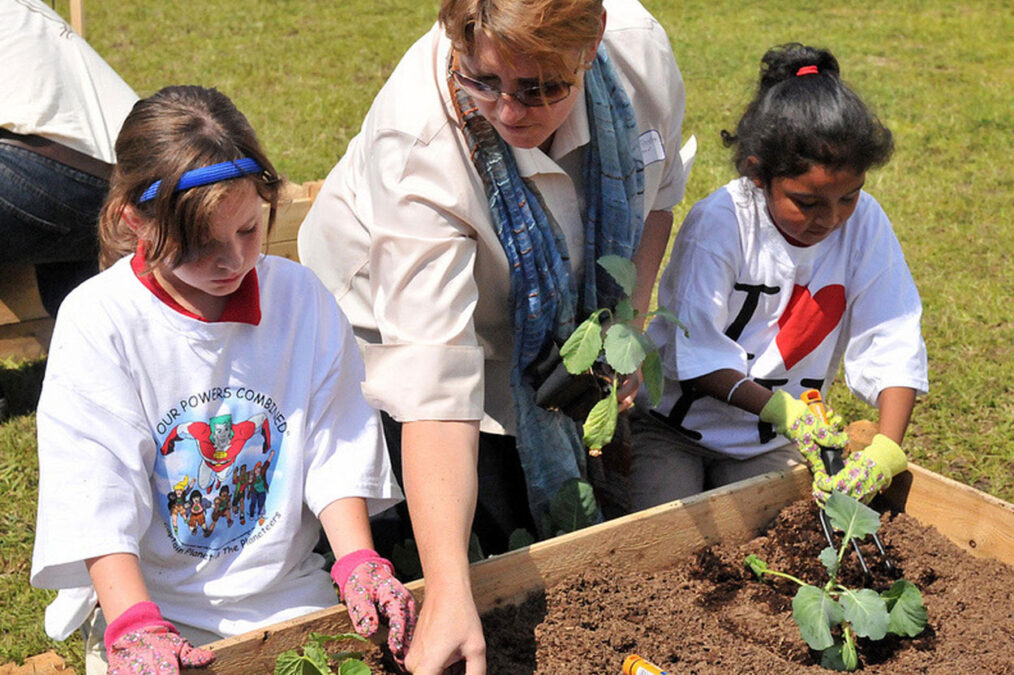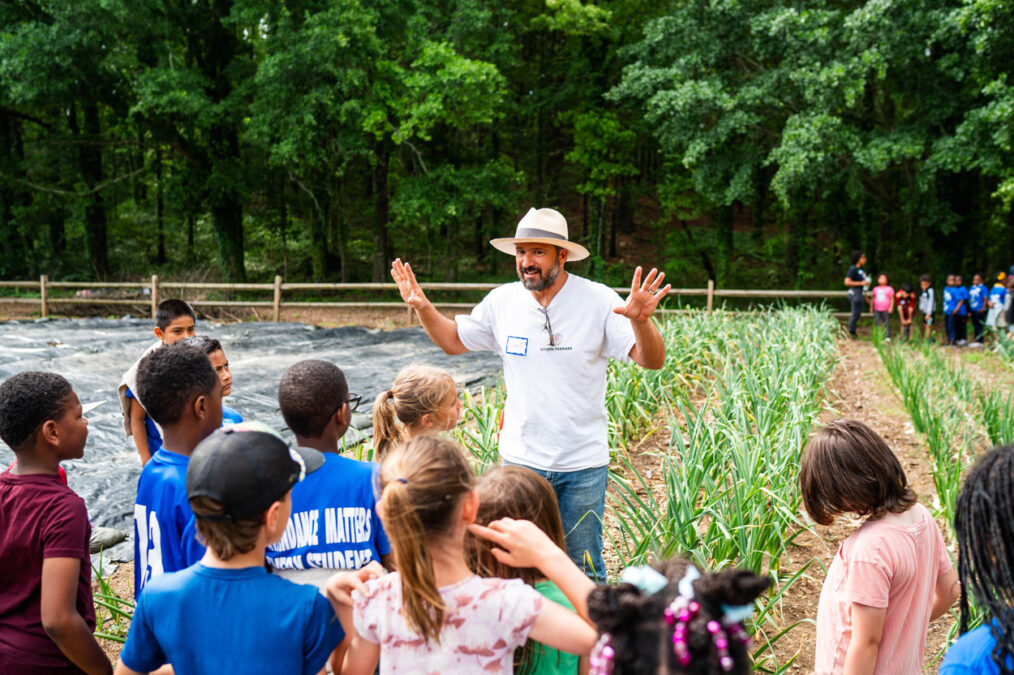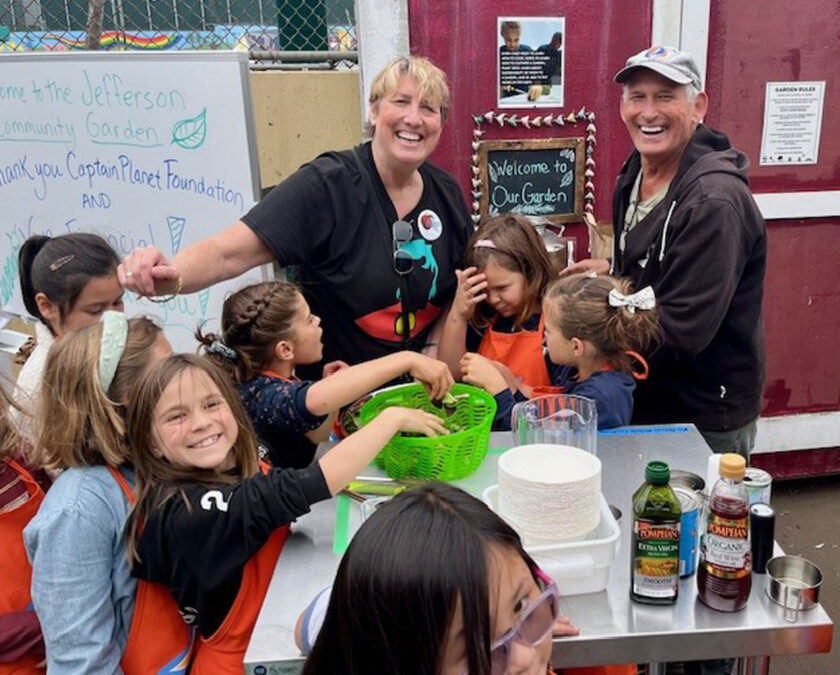For many of our Project Learning Garden recipient schools across the county (and beyond), the middle of June marks the beginning of a well-deserved summer vacation. With testing completed and administrative matters tied up, this is the time to celebrate: another successful school year in the books! However, the absence of students and faculty is not lost on school gardens— who rely on the constant attention and care from their school communities in order to thrive and continue being “living classrooms.” This is why on June 10th, Captain Planet Foundation CEO Leesa Carter-Jones and renown agro-designer and school gardening expert, Derron “Farmer D” Joffe, led an info session for our PLG community on summer maintenance strategies. The teachers and school faculty on the call also had the opportunity to connect with one another, ask follow-up questions for Leesa and Farmer D, and provide their own insight and advice on summer garden maintenance.

“Ideally what happens is when we come back to school, the gardens are in good enough shape so that we can immediately get back into them,” Leesa explained. When students return, they are then able to hop right back into the joys of a learning garden— harvesting crops and preparing new ones for the fall and early winter.
Here were Leesa’s top tips for maintaining a school garden in the summer:
- Create a sign-up for school families to adopt garden beds. Ideally, these are families who may live close by, and each could adopt 1-2 beds. They are then able to split the harvest throughout the summer.
- High school service learning hours. From Beta Club to National Honors Society, high school students often need service hours. Involving these teens in your garden management is a great way to receive extra hands during the summer.
- Local food pantry management. Religious organizations and food banks often have volunteers who are already harvesting in community gardens. Reach out to these organizations to see if they would be willing to support your school garden too!
- Teacher/admin involvement. Whether it’s lesson-planning for the year ahead, redesigning a classroom, or getting ahead on administrative work— a school is never completely empty. Reach out to faculty who are in the building over the summer and see if they would be willing to help out. You never know, your Principal may even have quite the green thumb!
Farmer D Discusses Cover Cropping
While Leesa’s tips necessitate volunteers and helping hands, Farmer D suggested a different approach— one that is low maintenance and offers lessons on regenerative agriculture. This strategy is called “cover cropping,” and is a method which involves planting specific types of crops and seeds that protect existing crops while also placing a temporary “pause” within the garden.

Allowing the soil to rest and regenerate is a fantastic lesson for kids, explained Farmer D, as students will come back from their summer break and see how different cover crops have provided unique benefits to their school garden. Tall grasses like sorghum and millet can protect crops from the sun, while pollinators such as sunflowers and buckwheat have deep roots that prevent erosion and attract all-important bees. Additionally, cover cropping is an important lesson in biomass and soil biology— as the chemical makeup of the soil will change and improve over the summer months.
Farmer D also clarified how cover cropping can include blends of both seeds and food, as crops such as okra, peppers, tomatoes, beans, and corn are all great options. Both Leesa and Farmer D noted that it is also not too late to plant sweet potato slips, which require little to no maintenance and are ready to harvest come October.
Centering The Learning
With extensive experience in educating students within the learning garden space, Farmer D expressed the importance of student ownership in determining how best to maintain a garden.

“My most inspiring experience in the garden with kids has been watching them come up with their own ideas,” he said. “When the kids have their own ownership, they are coming to the garden with their own energy and self-determination as opposed to seeing it as a chore.”
Leesa emphasized this sentiment, reminding the school faculty on the call that there should not be intense pressure in caring for a school’s garden over the summer.
“Learning gardens are an iterative process,” Leesa explained.
“If it doesn’t work out this summer, then when the students come back in the fall, it’s a great opportunity to say, ‘Hey! Let’s go out and take a look and see what survived and did not survive. Why do we think that happened?”
